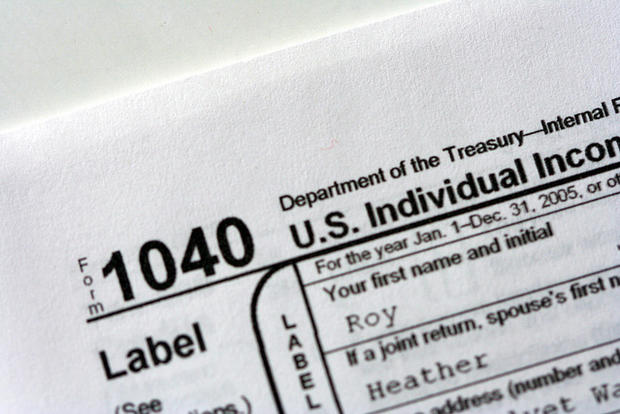"Buffett Rule" fails in the Senate
Updated: 7:20 pm ET
The Senate on Monday struck down the so-called "Buffett Rule," a Democratic-backed measure that would require high income Americans to be taxed at a rate of at least 30 percent, with 51 Senators voting to proceed with a vote on the legislation and 45 voting not to proceed with a vote.
Democrats needed 60 votes to overcome a filibuster.
The vote was largely along party lines. Susan Collins, of Maine, was the sole Republican to vote for the rule, and Senator Mark Pryor, D-Ark., was the lone Democrat who voted against it.
As Americans across the country rush to file their taxes ahead of this year's April 17 deadline, Senate Democrats were pushing the Buffett Rule legislation, which would have mandated that income above $2 million would be taxed at least at a 30 percent rate, with a graduated boost in the minimum marginal rates for income between $1 million and $2 million.
President Obama has for months pushed a version of this legislation, which he argues would level the playing field for Americans who are unable to take advantage of the tax deductions and low rates on capital gains which benefit many high earners. White House officials have estimatedthat the Buffett Rule would produce $47 billion over ten years in additional tax revenue for the government.
Buffett rule: A Q&ACongress battles over tax changes as Tax Day nears
"It's simple: If you make more than $1 million every year, you should pay at least the same percentage of your income in taxes as middle-class families do," the president said in his weekly address on Saturday.
The rule is named after billionaire investor Warren Buffett, who has become something of a symbol for the left on the matter of tax reform after arguing in an op-ed last year that the wealthy should be forced to pay higher tax rates. Buffett has often pointed to the tax breakdown among his own staff as an example, noting that his secretary pays a higher overall tax rate than he does. The New York Times reported Monday that Mr. Obama, too, paid a lower tax rate than his secretary in 2011.
Senate Majority Leader Harry Reid argued in remarks on the Senate floor Monday that the nation's highest earners "shouldn't be allowed to hide behind tax loopholes that rig the system in their favor."
The measure has faced strong resistance from Republicans, many of whom argue it is little more than a political gimmick that would harm the economy in its fragile state.
"This entire debate has been very illuminating for a lot of folks," said Senate Minority Leader Mitch McConnell. "It's revealed a lot about this president. By wasting so much time on this political gimmick that even Democrats admit won't solve our larger problems, it's shown the president is more interested in misleading people than he is in leading."
A handful of recent polls have showed that most Americans support some version of the Buffett Rule. A new CNN/ORC poll shows that 72 percent of Americans favor the measure, and a Gallup poll from last week indicated that 60 percent favor the rule.
In a statement following the bill's failure, Mr. Obama lambasted Senate Republicans for "choosing once again to protect tax breaks for the wealthiest few Americans at the expense of the middle class."
"The Buffett Rule is common sense," Mr. Obama said in the statement. "One of the fundamental challenges of our time is building an economy where everyone gets a fair shot, everyone does their fair share, and everyone plays by the same rules. And I will continue to push Congress to take steps to not only restore economic security for the middle class and those trying to reach the middle class, but also to create an economy that's built to last."

